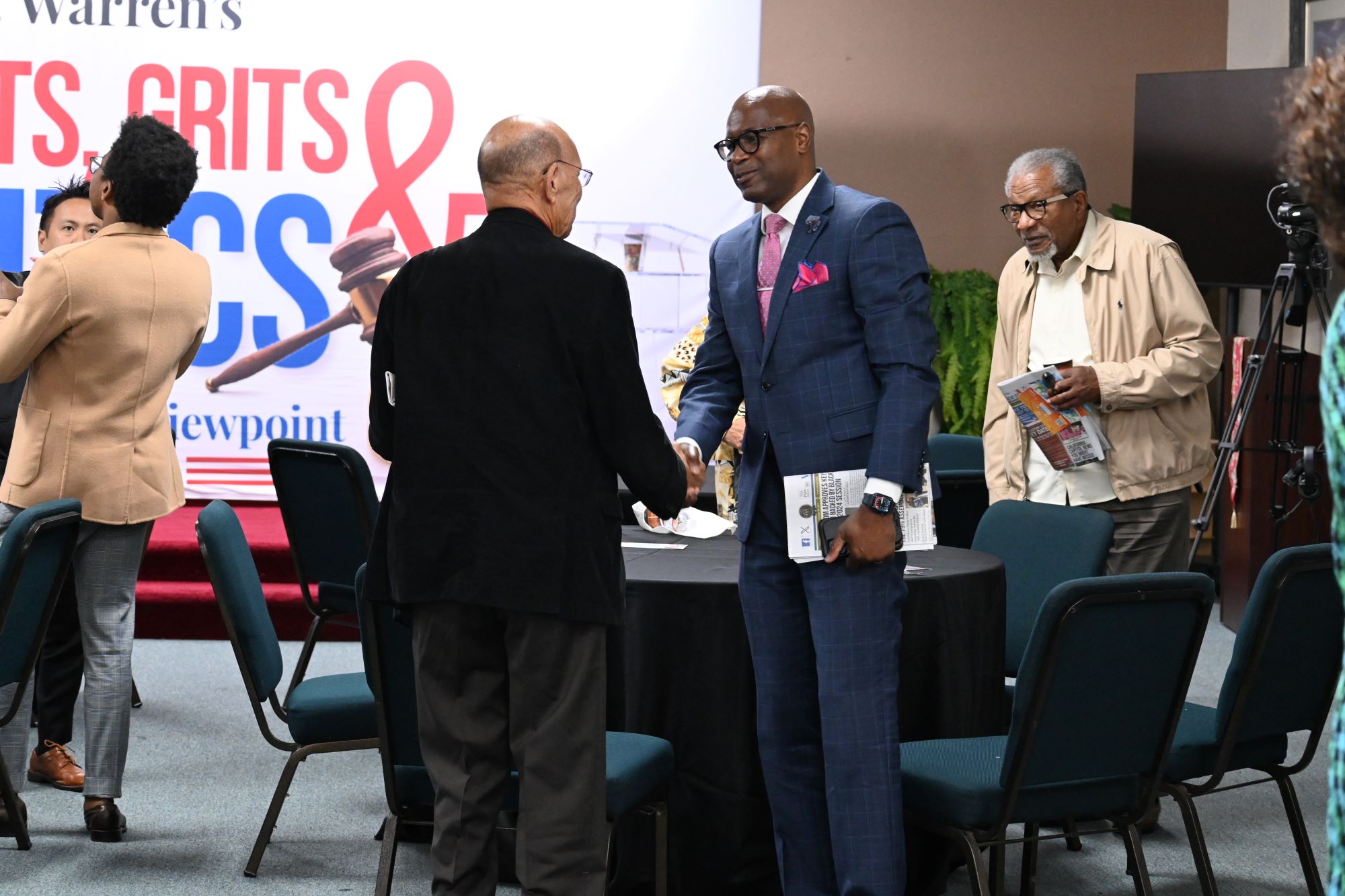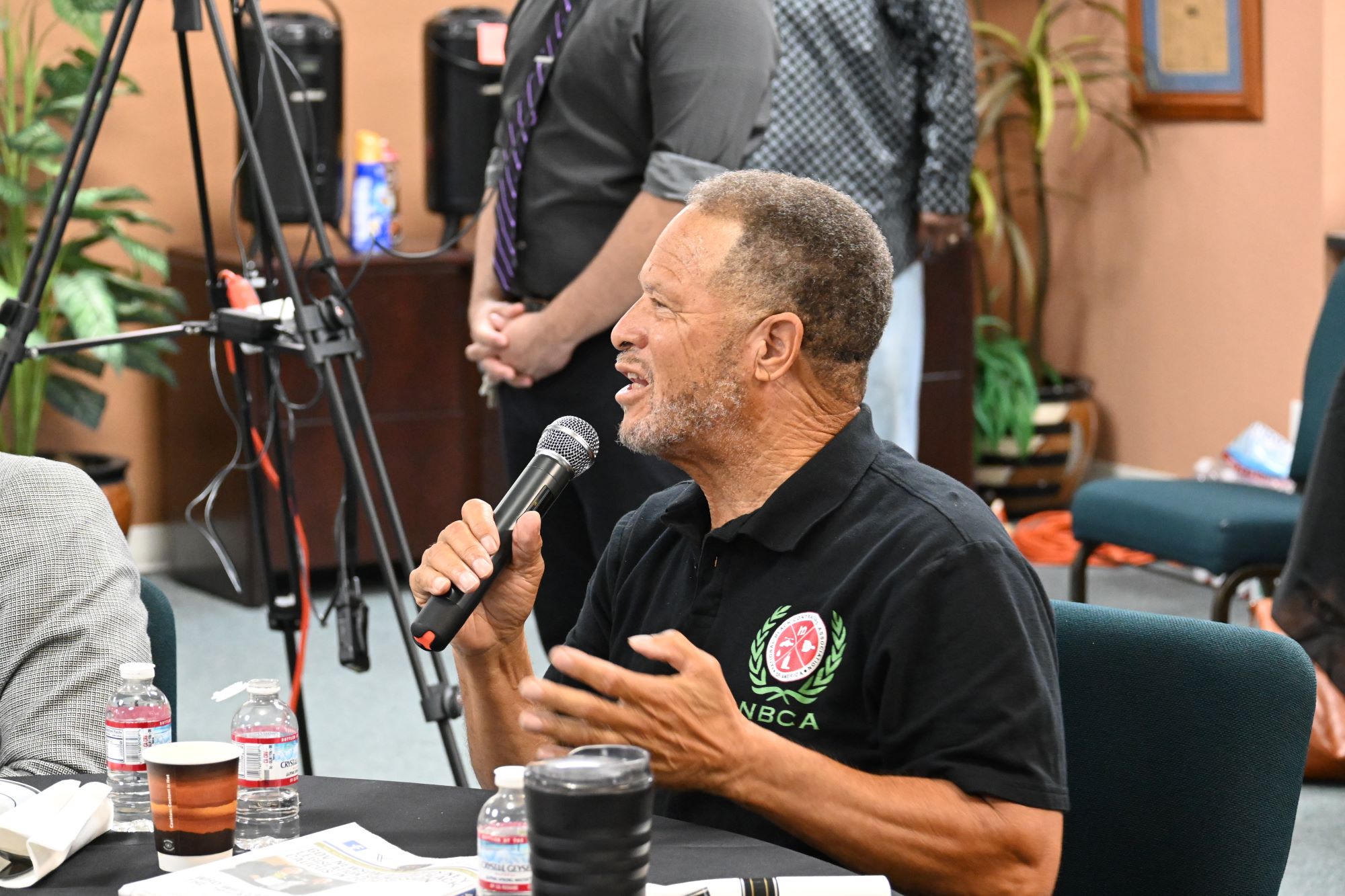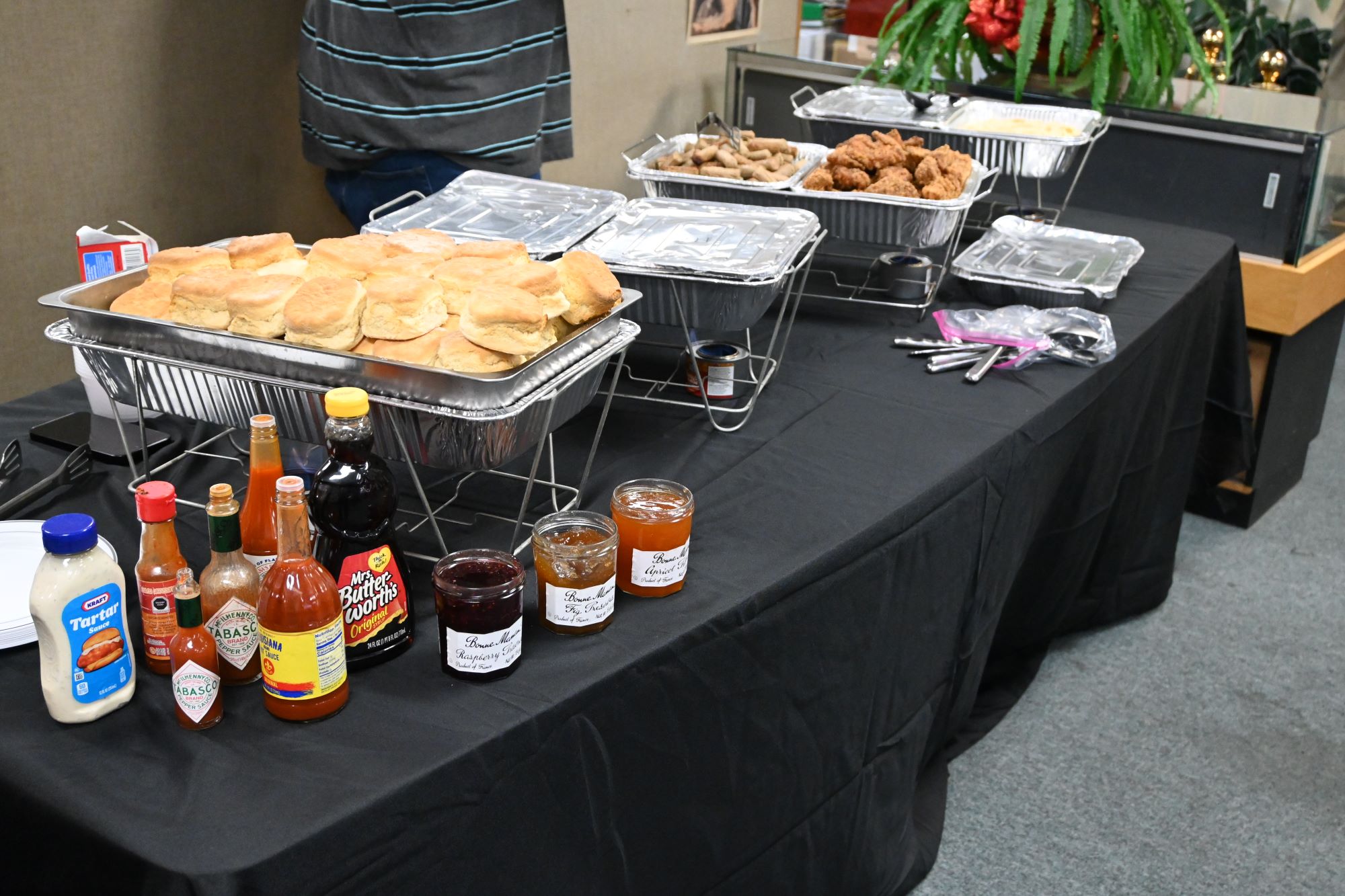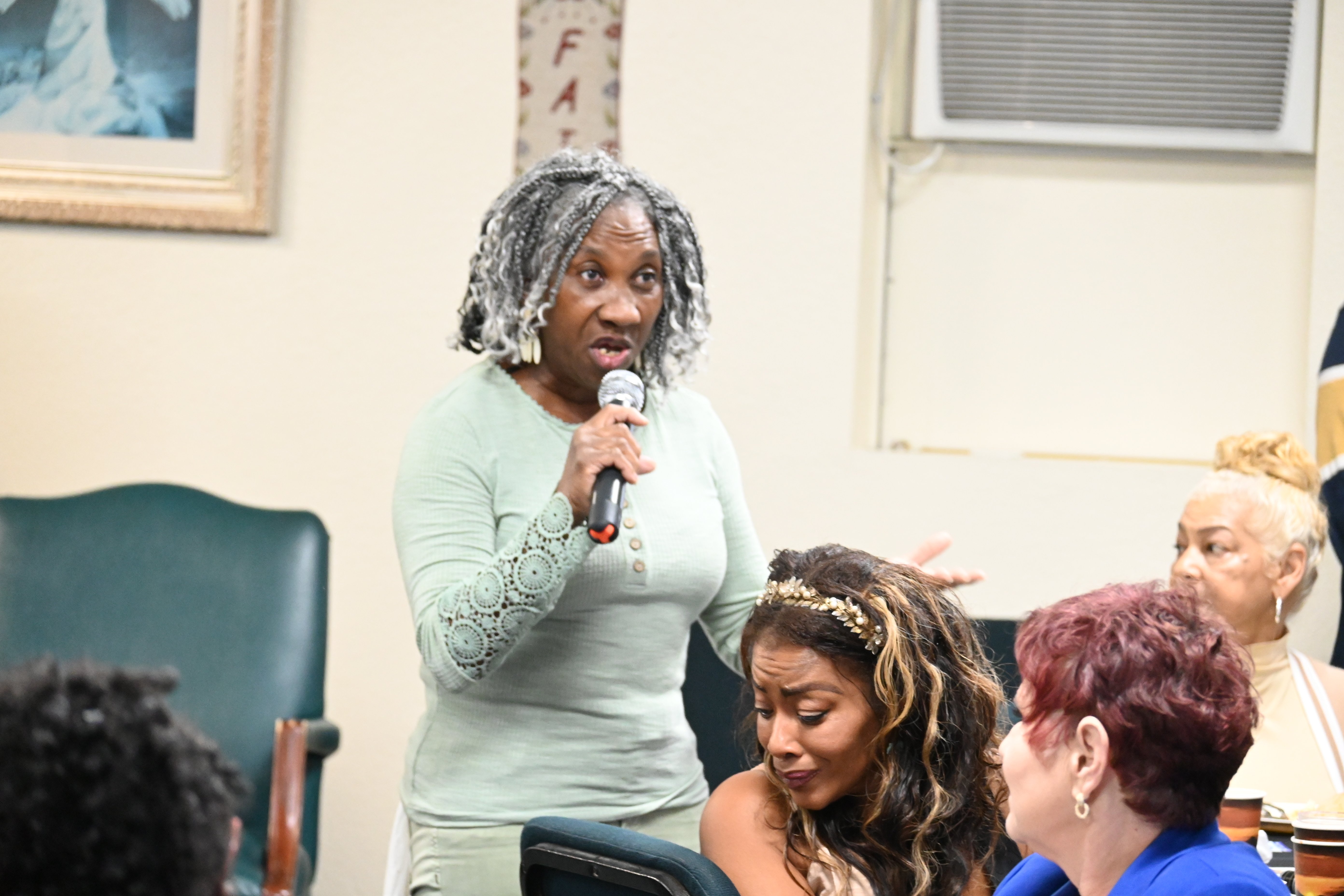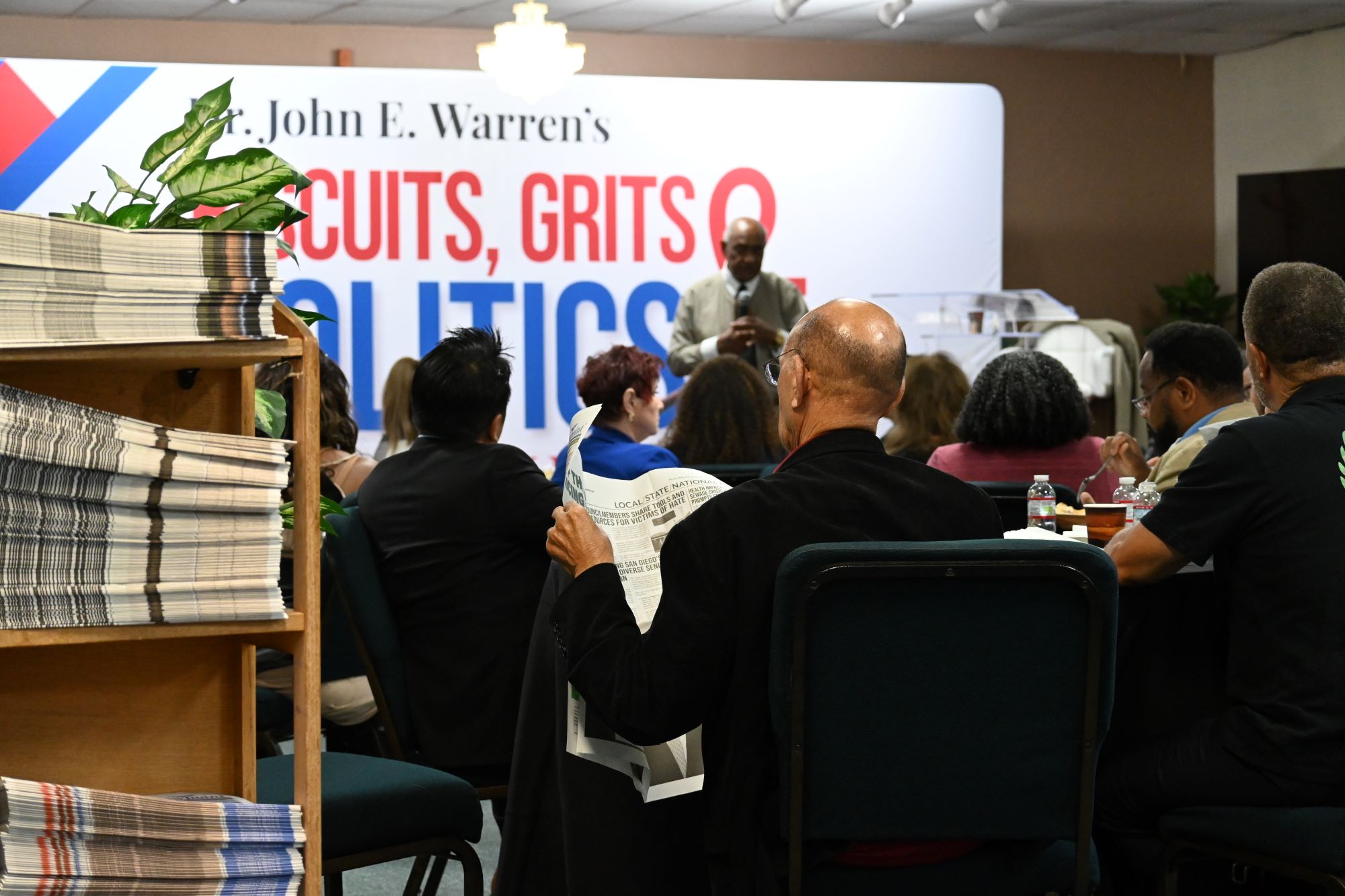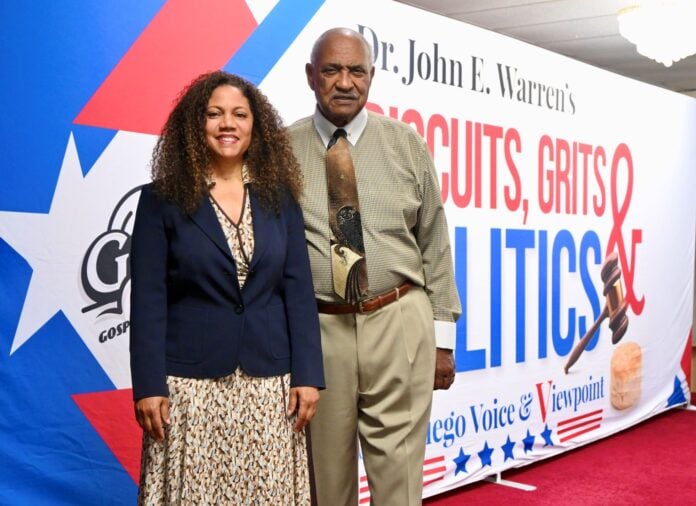
By Macy Meinhardt, Voice & Viewpoint Staff Writer
Bright and early Tuesday morning, the smell of fresh biscuits, grits, catfish, and coffee filled the office space of Voice & Viewpoint as we geared up to host our first Biscuits, Grits, and Politics of the season— this time heavy on the politics side.
“I want today to be an opportunity to have a candid discussion, some of you have questions and comments about the political process, and this is a safe space in which you can express that,” said Dr. John Warren, publisher of Voice & Viewpoint.
With less than thirty days until the election, where voters will be asked to pick candidates ranging from local mayor to national president, the importance of community members receiving accurate election information is critical.
Dr. Warren assured the early morning-goers in the audience that “we don’t care here if you are a Democrat, Republican, Independent, or none of the above, all we want to do is to have an informed community, because knowledge is powerful.”
Questions and topics brought up throughout the breakfast event included statewide propositions, the process of the electoral college, battleground states, and the importance of not letting apathy take the power away from people’s vote.
Kickstarting comments from the audience was Dr. LaShae Sharp-Collins, who is running for the 79th assembly district seat against La Mesa Councilmember Colin Parent.
“I am tired of us being left behind,” said Sharp-Collins, on her reasoning for running for office. I’m tired of us having to continue to beg for crumbs and try to figure out where the money is going? Why is the quality of education within our district still a big issue? Why are we still having a housing issue? Why are we still having the homelessness issue? Why are our veterans being left behind?”
‘Being left behind’ expresses a broader sentiment for African Americans when it comes to political representation. A 2022 study from Pew Research Center shows that despite increased attention to racial issues in the past few years, 64% of Black respondents say they have not seen their lives changed or improved in any representative way.
Now that Vice President Kamala Harris has entered into the race, that idea has been flipped on its head for many Black voters. With another Pew study conducted in Sept. 2024, showing an overwhelming majority, 84 percent, of Black registered voters in support of Harris.
“Vote your values with any candidate. I don’t care who is at the top or at the bottom. If you do not see yourself within that particular candidate, and do not see yourself within that message. Then that is not who you need to be voting for,” said Sharp-Collins.
On the topic of Black political engagement, Dr. Warren echoed sentiments from Dr. Martin Luther King’s “Give us the Ballot” speech.
“I have come to see more and more that one of the most decisive steps that the Negro can take is that little walk to the voting booth. That is an important step. We’ve got to gain the ballot, and through that gain, political power,” said Dr. King, in a 1957 speech originally regarding Brown V. Board of Education.
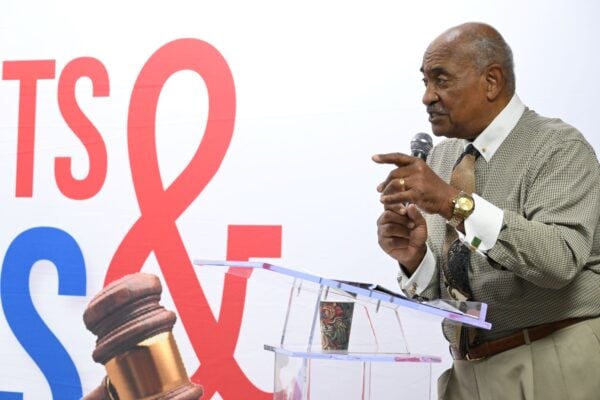
Meanwhile, questions on the weight of voting in California and the process of the electoral college also arose.
In U.S. politics, presidential elections are decided by a weighted voting system known as the Electoral College, not by the popular vote. Most states historically vote with one party, like California for Democrats. However, “swing states” don’t always vote the same way, so candidates focus more attention and resources there because those states can end up deciding the election outcome.
Key swing states that could be the deciding factor in this presidential election include Arizona, Georgia, Michigan, Pennsylvania, Wisconsin, Nevada, Minnesota and North Carolina.
“Those are the states that are going to determine who sits in the White House,” said Latrell Crenshaw, a member in the audience. “Even though California is considered a safe state for the Democratic Party, it’s still important that you vote in California and call your family and friends in swing states,” he said.
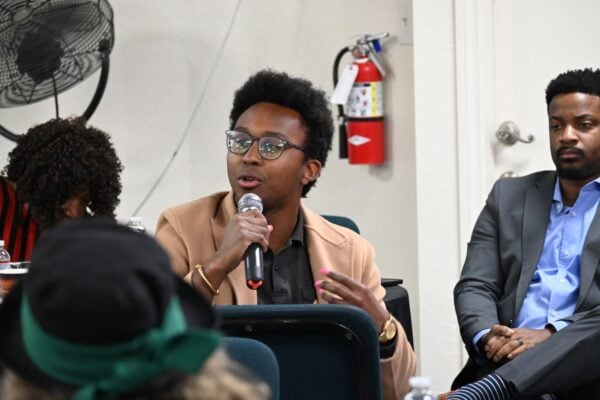
“I don’t want people discouraged,” said Bishop Roy Dixon, who emphasized that even though it’s not
the popular vote that elects the president, it is a popular vote that determines the electoral college.
“That’s why it’s still critical to vote, if in doubt, vote.” Dr. Warren added.
To learn more information on propositions, candidates, and voting locations visit Voice & Viewpoint 2024 Voting Guide.
Watch the full event HERE
